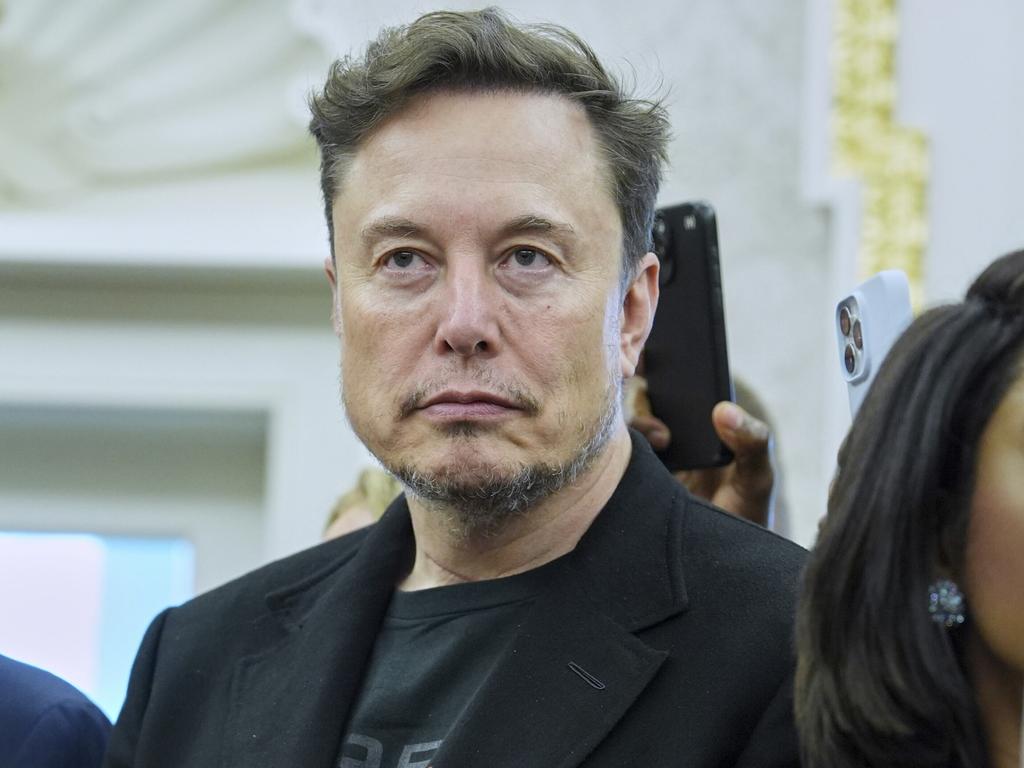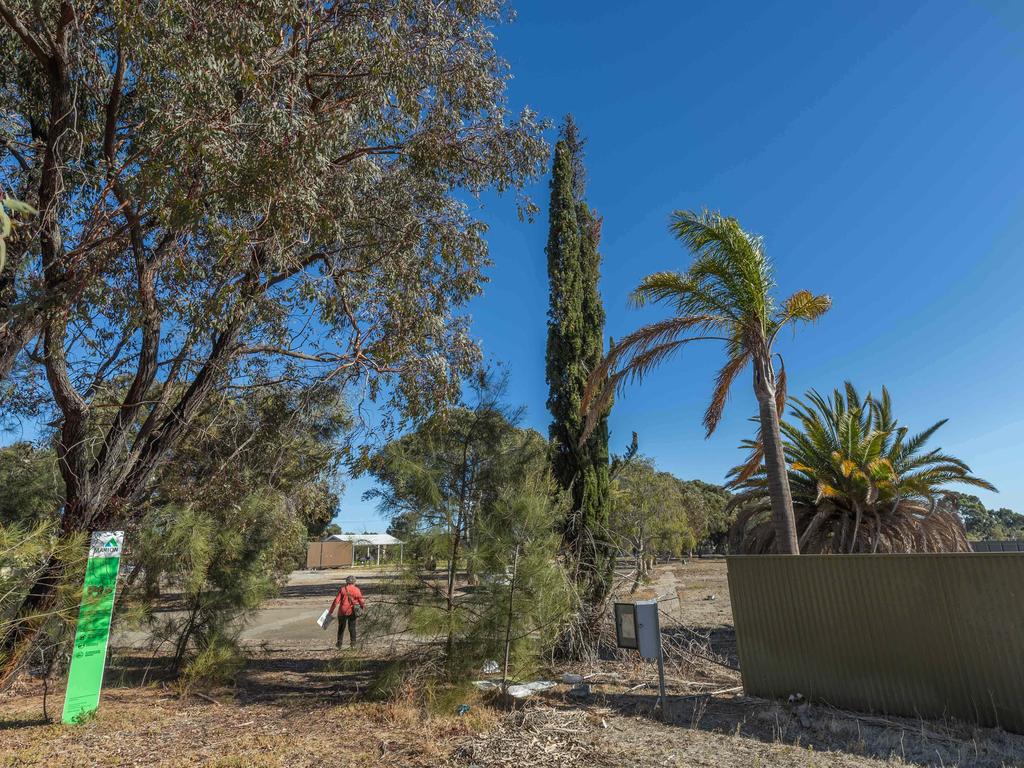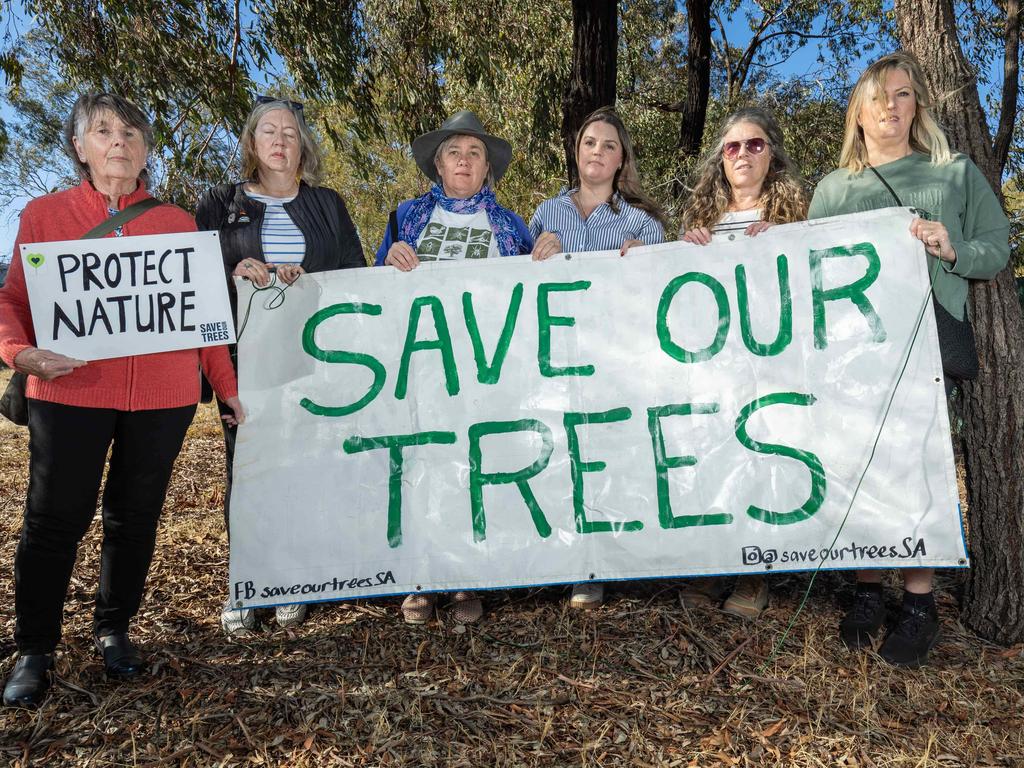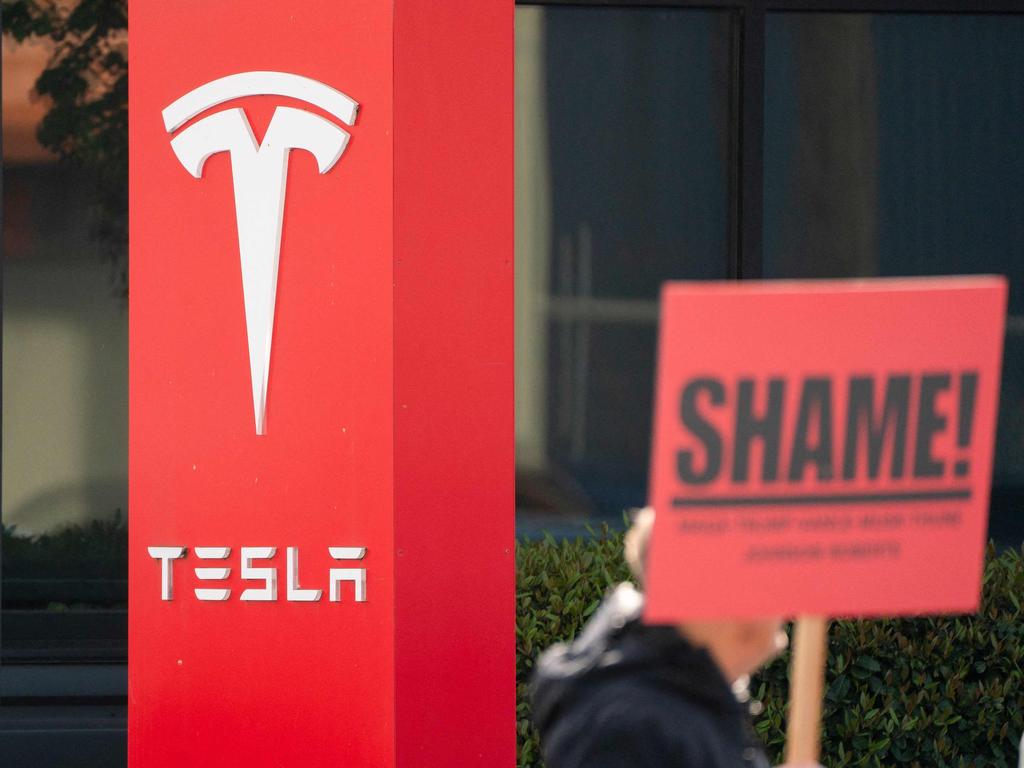‘Noisy, ugly, planet-destroying temple’: Adelaide locals revolt over Tesla plan
Adelaide residents have erupted over a proposal to build a “noisy, ugly, planet-destroying” Tesla factory in the city’s southern suburbs.
Adelaide residents have erupted over a proposal to build a Tesla factory on community land in the city’s southern suburbs, labelling the plan “a noisy, ugly, planet-destroying temple to billionaires”.
Locals were informed by Marion Council in April that selling off Chestnut Court Reserve in favour of the development of a battery factory, servicing facility and vehicle showroom for the Elon Musk-owned company would reap significant financial rewards.
The plan, however, was met with fierce opposition over the loss of public green space and tree coverage, and against the increasingly polarising Musk himself.
Roughly 90 per cent (897) of the near 1000 responses to Marion Council’s community consultation last month opposed the idea. Just 51 people were in favour.

Public sentiment toward the world’s richest man has grown progressively hostile, driven by his involvement in US politics. In addition to his vocal support for Donald Trump and the hundreds of millions of dollars in funding he contributed to the President’s campaign last year, Musk has become an enthusiastic advocate for right-wing parties around the world.
His savage cost-cutting measures as head of the Trump administration’s Department of Government Efficiency (DOGE) has also done him no favours.
In response, vandals have targeted Tesla vehicles across the globe, even prompting some owners to disguise their vehicles as other models, or sell them altogether.
In Australia, demand for Teslas – once the nation’s best-selling electric vehicle brand – has plummeted in recent months.
“Tesla is a horrible business for the City of Marion to even consider providing this land to,” one Marion resident wrote on Facebook, in opposition to the plan.
Another described the potential factory as “a noisy, ugly, planet-destroying temple to billionaires”.
On a website called ‘Trees Not Teslas’, community members also warned the facility risks “bringing protests to the area, gives the community a bad image, and hurts Tonsley’s reputation”.


City of Marion councillor Sarah Luscombe has urged the council to “think really carefully” about other options for the state-owned land, which has been closed to the public since 2016 due to heavy contamination.
“If council wants to do more to activate the land then it could be put out to open tender to more local companies who could innovate and do something with the land for conservation biodiversity (and) improve tree canopy,” she told The Advertiser.
The proposal is “unlikely to go ahead” if the council says no to it, Cr Luscombe added.
The issue will be discussed at a council meeting on Tuesday.

Tesla made more than $5 billion in revenue in Australia last year thanks to a “remarkable turnaround” in its battery division, amid tanking global sales for its vehicles.
Per its report for the 2024 calendar year, filed with the Australian Securities and Exchange Commission (ASIC), Tesla Motors Australia’s revenue jumped by a third ($1.29 billion) from $3.81bn in 2023 to $5.1bn within 12 months, while profits rose from $39 million to $65m.
That profit was in large part due to the sale, installation and operation of its batteries – at both grid and household scale – rather than its cars.
Revenue soared nearly five-fold from $580m to $2.55bn between 2023 and 2024, in what Renew Economy described as a “remarkable turnaround” for Tesla’s battery storage arm.
It also, for the first time, outpaced Tesla’s vehicle sales, which declined from $3.18bn to $2.44bn – a slide that’s continued since December.
The genesis of Tesla’s battery-based profits in Australia lies in a wager Mr Musk made with Aussie tech billionaire Mike Cannon-Brookes a decade ago.
At the time, Mr Musk told the Atlassian co-founder Tesla would install a 100-megawatt per hour storage plant, the world’s largest lithium battery, in South Australia within a hundred days.
Tesla delivered on the promise, prompting Mr Cannon-Brookes to concede he had “never been more happy to lose a bet”.
In late 2024, Tesla sought to find a buyer for the South Australian virtual power plant. That has yet to transpire.






